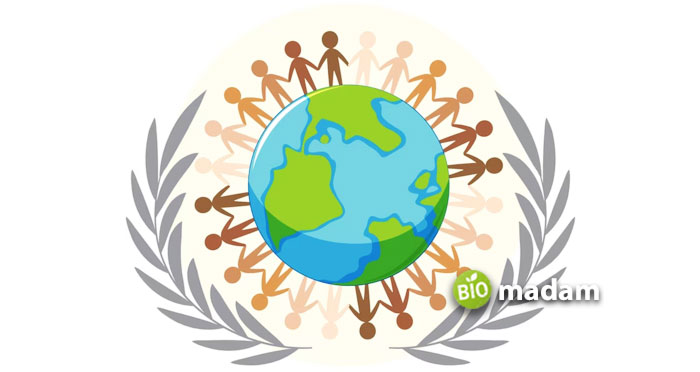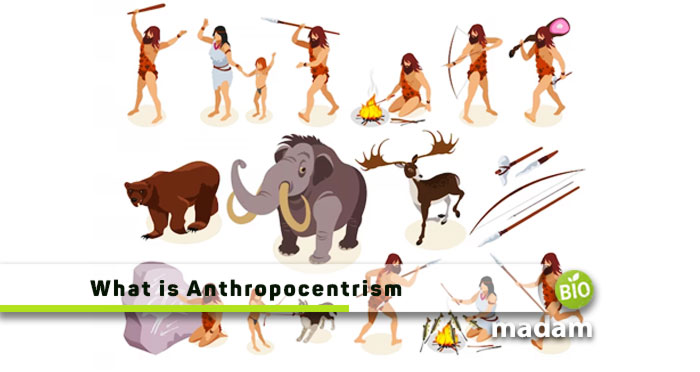Anthropocentrism is an environmental ethics theory, like ecocentrism and biocentrism, explaining another perspective on the importance of different parts of the environment. Compared to other theories, anthropocentrism focuses on humans more than other ecosystem elements. Thus, believers of other theories often oppose it. Some researchers believe putting humans in the center of the world is unfair to other organisms. This article covers everything you need to know about anthropocentrism and why it is a problem.
What is Anthropocentrism?
‘Anthropocentrism’ combines ‘anthro’ representing humans, and ‘centrism’ refers to putting something at the center. So, anthropocentrism in environmental ethics puts humans on a higher pedestal than other organisms. It mentions that humans are the most important part of the ecosystem and other organisms are only necessary until they support human survival or contribute to human pleasure.
This theory believes that value is human-centered and that all other organisms exist for the welfare of humankind. Thus, it negates biocentrism and ecocentrism, which mention all organisms’ equal value.
Example of Anthropocentrism
Caging and domesticating animals for human benefit is the prime example of anthropocentrism. It includes proliferating animals for human consumption and increasing egg and milk production artificially. Anthropocentrism may also include using animals for carrying weight, microorganism use for drug production, deforestation, etc.

Why is Anthropocentrism a Problem?
Researchers who support the welfare of the environment argue that environmental anthropocentrism is ethically incorrect and may lead to ecological crises.
Authors believe that anthropocentrism mentions humans as the center of the world at the expense of the interests of other species and subspecies. So, anthropocentrism exhibits itself as human chauvinism and speciesism.
Eventually, the general understanding of the term, emphasizing the interests of humans’ interests over nonhumans, makes it unethical.
Though Hayward says speciesism and human chauvinism are bad, not anthropocentrism, others believe that human chauvinism is also a part of anthropocentrism.
Arguments Supporting Anthropocentrism
While many authors are against the idea of anthropocentrism and even use the word, others believe the critics are misguided. Pro-anthropocentrism researchers present the following points to support it:
- They believe that the critics probably fail to understand legitimate and illegitimate human interests.
- Moreover, they mention that humans differ in their environmental impact, and thus, arguments against these inequalities must only be based on protecting the environment.
- At the same time, anthropocentrism supports that the ecosystem is the life support system for humans. So, humans are an impactful motivation to protect the environment.
This evidence suggests that anthropocentrism is not completely bad, and this intergenerational approach can help the environment’s advantage. They believe that the steps taken to improve people’s lives today and tomorrow can also benefit the environment now and in the future.
Moreover, anthropomorphism, referring to imaging plants, animals, and even objects to have human characteristics, is an interesting offshoot of anthropocentrism. Realizing other organisms and nonliving components in this light can help activists promote pro-environment communication.
Arguments Against Anthropocentrism
Authors in favor of anthropocentrism have explained their point of view that it does not directly harm other living beings, yet others are still not convinced. Despite considering redefining anthropocentrism, they think we must consider it obsolete.
- Redefining the term will not change how some groups feel about the importance of other organisms but only ignore the behavior that mentions that humans focus on themselves only.
- Also, biodiversity protection will never be possible if addressing human inequalities remains a precondition for environmental protection.
- They believe that anthropocentrism only benefits the environment when humans want to benefit themselves directly.

Biocentrism vs Anthropocentrism
Putting humans at the center of the world differentiates anthropocentrism from biocentrism. The believers of biocentrism negate anthropocentrism and promote the equal value of all living organisms. Thus, biocentrism gives importance to the welfare of all organisms, not only humans, as in anthropocentrism. Biocentrism promotes equality among organisms and also emphasizes the interconnection between the organisms.
The Bottom Line
Anthropocentrism refers to believing that humans are the center of the world. The believers of anthropocentrism emphasize that humans have the highest intrinsic value and that all other biotic and abiotic components exist for their welfare. Disregarding the impact of human self-love on the environment makes it a major problem. Authors negating anthropocentrism mention that this theory ignores the interests of other organisms and focuses only on human benefit, which may lead to ecological disturbances.
FAQs
What is the disadvantage of anthropocentrism?
Anthropocentrism is believed to have impacted the environment negatively, leading to imbalance; it has led to environmental degradation and global warming.
What are the important factors of anthropocentrism?
Anthropocentrism suggests different viewpoints than the ideas of biocentrism, thus having to differentiate important factors. It states that humans have greater intrinsic value than all other species. This importance given to humans has a significant influence on their interactions with other organisms.
What is the Anthropocene in anthropocentrism?
Anthropocene refers to the current geological era after the Holocene in which humans have prospered. Paul Crutzen mentioned we are facing a new era called the Anthropocene. It is the idea that human activities lead to environmental issues, thus negating anthropocentrism.

Jeannie has achieved her Master’s degree in science and technology and is further pursuing a Ph.D. She desires to provide you the validated knowledge about science, technology, and the environment through writing articles.

